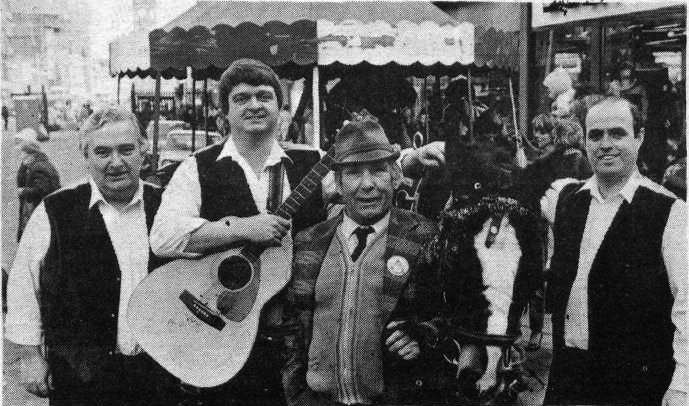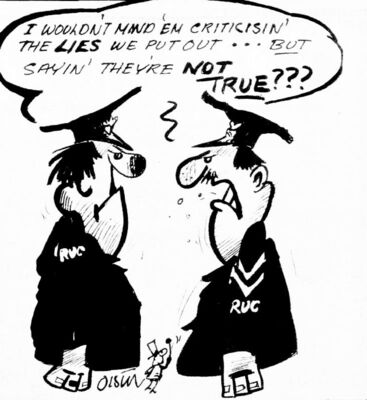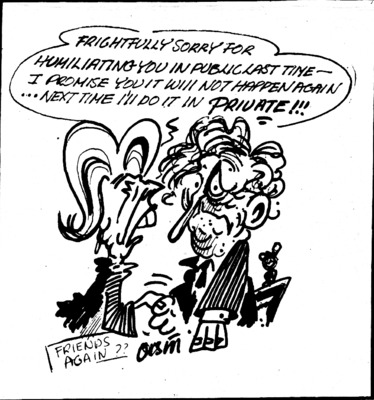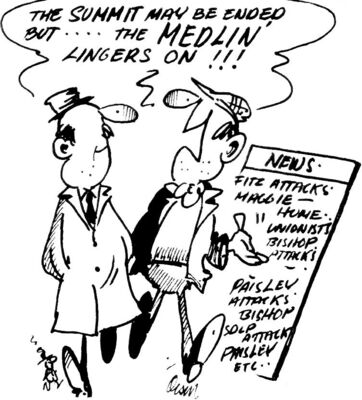We look at the stories that were making the news headlines this week in 1983
Mickey Marley single released by Belfast troubadours
BELFAST group Barnbrack have just released their first single on the Homespun Label.
Jimmy McPeake, leader of the group, is very pleased that their first single should be written by another Belfast man Seamus Robinson. The song is sung by Alec Quinn, the second member of the trio. It tells the story of the legendary character Mickey Marley, going around the streets giving many children joy and happiness with his roundabout.
The vocal backing on the record is provided by the children of Oliver Plunkett School Choir. The B side of the record is a sing along melody sung by Owen McMahon, the third member of the group. It is a track from the very successful long player 'Irish Pub Sing-a-Long' which is Barnbrack's first album. It reached No. 2 in the BBC Radio Folk Charts.
Owen says: "I don't think we would now fit on the roundabout. People called us the heavyweights because between us we weigh about 46 stone, but it always projects a happy image. We were delighted with the success of our first album, it meant that our bookings have increased. Long may it continue."
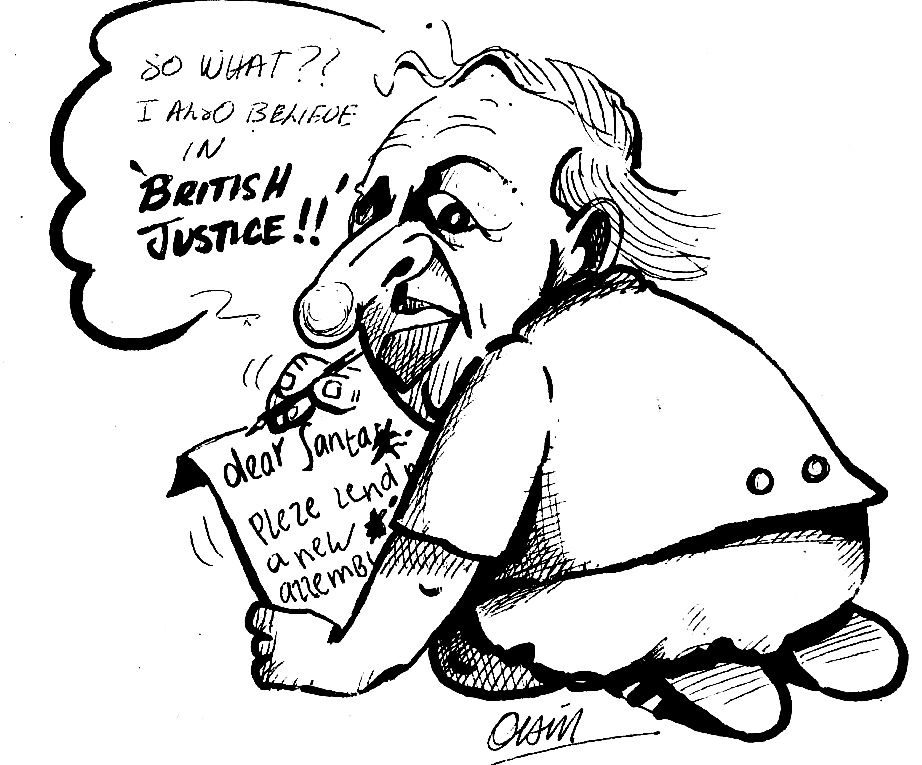
RUC and UDR fears in Catholic community
THERE is widespread concern in Catholic areas about the apparent breakdown in “security” force discipline as increasing numbers of RUC and UDR men are charged with murder.
The murder of Tony Dawson in the Short Strand on Monday night, and the questioning of a full-time RUC man about his murder, has increased this fear. With 31 members of the British “security” forces killed during the year, people fear that private reprisals may be on the increase.
With 1983 drawing to a close the number of people killed in the Troubles over the last 12 months stands at 65. Of this figure five were Belfast Catholics shot dead either by the British army or loyalist paramilitaries. 31 members of the British forces were killed during the year and five of these deaths occurred in Belfast.
The IRA also shot dead two civilians, Judge William Doyle and Official Unionist Assembly Representative Edgar Graham, in the south of the city. Gerard Barkley of Ballymurphy was one of two people shot dead by the INLA.
In all ten fatal shootings of nationalists can be attributed to the shoot-to-kill policy. Three victims of this policy died after robberies. Two men it was claimed had just taken part in armed robberies when shot by the RUC while at third, pensioner Mrs Brigid Foster, died when RUC men fired a hail of bullets into a Pomeroy Post Office after a raid. Of the other seven, two were totally unconnected with republican groupings, while three were members of the INLA and two from the IRA. One man, UVF member William Millar was shot dead in March near the university in an apparent extension of the shoot-to-kill policy.
Four fatal shootings during the year went unclaimed by any grouping. One of the four was Workers' Party member, Eamon Kerr, who was shot dead in his Lower Falls home last March. The INLA were involved in six killings over the last 12 months. These included one RUC man shot dead in Cookstown and the three Darkley victims, Victor Cunningham, Harold Brown and David Wilson. The IRA admitted involvement in 40 deaths. Among these were 16 RUC members, eight UDR personnel, six British soldiers and one prison warder.

